Celebrating International Women’s Day 2024 under the theme “Inspire Inclusion,” we delve into the essence of inclusivity and empowerment across the societal spectrum. Emphasizing this global call to action, we engaged with prominent women leaders from diverse sectors to gather their insights on advancing women in leadership, mastering personal branding in competitive fields, and the transformative experiences shaping their careers. Their responses offer a rich tapestry of strategies, reflections, and visions aimed at fostering a more inclusive and equitable future for women in leadership and beyond.
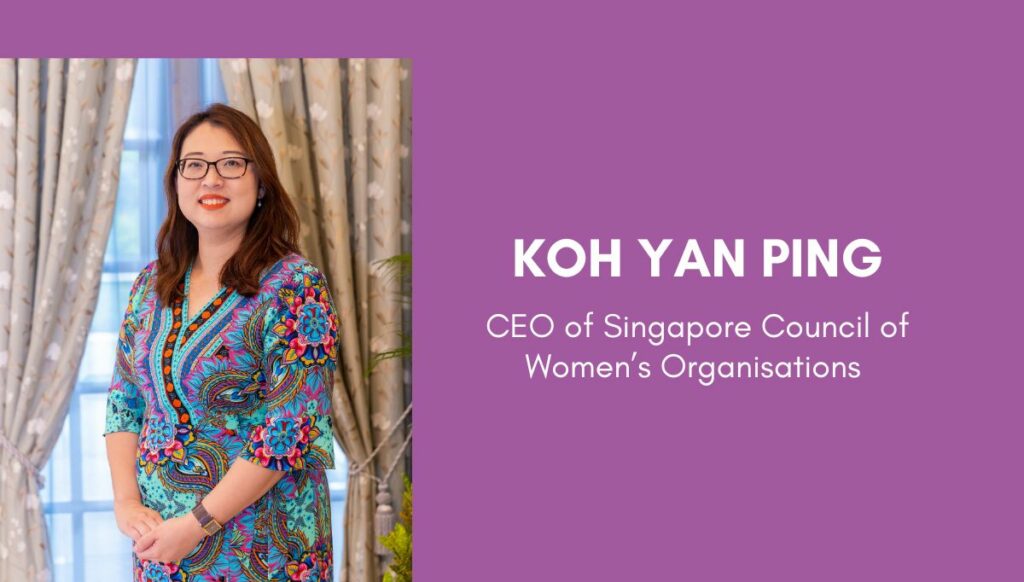
How do you envision the future of women in leadership and the steps we can take to ensure a more inclusive environment?
At SCWO, we believe in the ideals of Equal Space, Equal Voice, Equal Worth and that women should have equal opportunities at the workplace.
Research such as the Reykjavik Index for Leadership 2022 – 2023 shows that prejudice continues to surround female leadership, with only 30% of respondents reporting being very comfortable with a woman being Head of Government, Minister, or CEO of a major or SME company. It also revealed perceptions that women are more suited to certain traditionally-female industries, and this occupational segregation could mean that women are also prejudiced against themselves, largely deviating from careers that are based on STEM (science, technology, engineering, and mathematics).
To build a more inclusive society moving forward, we should inculcate values of respect and equality between women and men from a young age. This can be done through role-modelling by parents at home and in schools to address gender stereotypes. It is also where programmes like Project Awesome come in, to continue to bring about these long-term mindset changes in society, starting with our youth.
The program brings together the incredible stories of honourees of the Singapore Women’s Hall of Fame to school children across Singapore. As published in Awesome Women of Singapore, a book that aims to shed light on women’s achievements and contributions to the nation, it shares these stories with young Singaporeans to inspire them to challenge whatever limits they may face and the dare to dream.
In addition, the inaugural Singapore Women’s Hall of Fame reiterates the importance of an inclusive society by showcasing values that drive these outstanding women, who otherwise might not have been spotlighted.
On this point, it’s important to note that changing mindsets across the long-term will take a whole-of-society effort. Everyone, including family members, teachers, colleagues, employers, and others in the community, play an important role in shifting our mindsets to rebuild the flawed foundation of gendered expectations passed down from generations before us. Only with this first step of acknowledgement among both genders and the younger generation, can we build a more progressive nation that truly celebrates gender diversity and inclusiveness.
In your experience, what are the most effective strategies for women to brand themselves in competitive industries?
The concept of personal branding is often overlooked by women or done in an unintentional manner. In many corporate settings, intentional personal branding is an effective way to get “noticed” for leadership opportunities. One strategy is sharing personal opinions or viewpoints on issues that are of concern or interest in one’s industry by leveraging on social media as well.
Beyond the network on digital platforms, building physical networks remain an important strategy for branding oneself. Gaining access to the right networks can be achieved through mentoring programmes either within or outside of the organisation.
Especially in more competitive and traditionally male-dominated industries, programmes like BoardAgender continue to be vital in building a pipeline of board-ready women to lead tomorrow’s organisations. Connecting aspiring female directors with mentors who are experienced board directors, the programme supports these women in their journey to the boardrooms. With more women representation in leadership and management in these industries, it will bring attention to the unique value that women can bring to these fields and continue to dispel gendered perceptions suitability to leadership or certain types of industries and work.
Can you share a pivotal moment in your career that significantly influenced your path or mindset?
Joining SCWO after close to 15 years in the labour movement where I championed the interests of working women was a pivotal moment for me. My passion and experience in advocating for gender equality is now extended beyond the workplace where I can work with like-minded women organisations, partners, and policymakers towards a gender equal society.
With over 40 years of history, SCWO was set up to unite the voice and efforts, to improve the status of women in Singapore. We are proud that decades later, SCWO can continue to play the role of the national coordinating body for women’s organisations and have been able to contribute to the national-level conversations on Singapore Women’s Development in 2020 which shaped the White Paper on Women’s Development that was announced in 2022. Among the many recommendations that were made by SCWO, some of the recent legislation and policy changes have been a result of the Government actively engaging and seeking inputs from SCWO. These include the Workplace Fairness Act and most recently, the Family Violence (Amendment) Bill–where legislation has been strengthened to better protect survivors of family violence, as well as enhance the rehabilitation and accountability of perpetrators.
The Singapore Women’s Hall of Fame is also reaching a significant milestone as it celebrates its 10th anniversary this year. With this year’s ceremony happening on 8 March, it marks a decade of celebrating and recognising the achievements of Singapore’s extraordinary women in their respective fields – and inspiring children, both girls and boys, to similarly aim high and live their lives at their fullest potential.
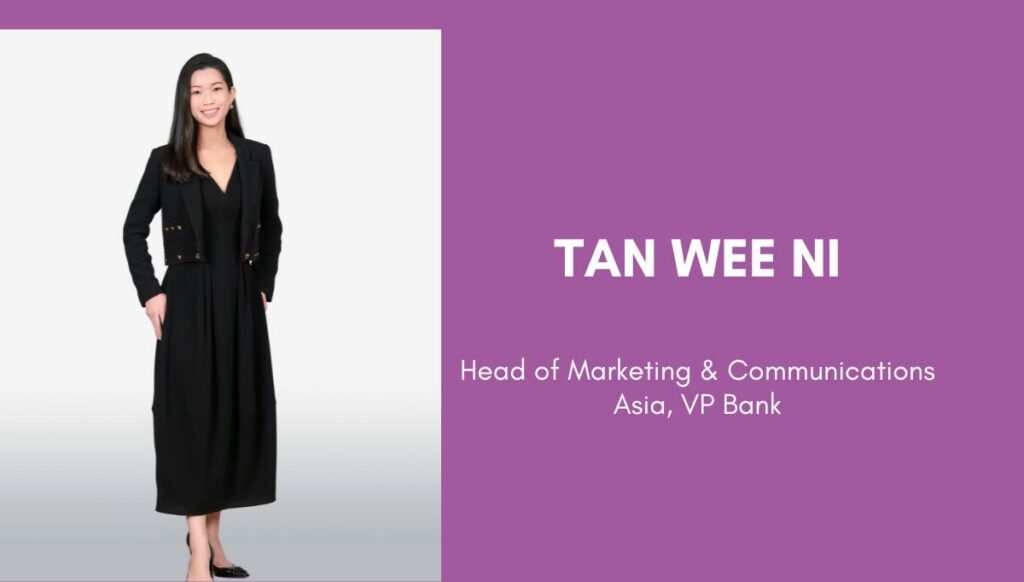
In your experience, what are the most effective strategies for women to brand themselves in competitive industries?
Developing a robust personal brand is invaluable, as a strong personal brand can put you on the radar for exciting opportunities. There is no silver bullet, but I have found that consciously cultivating a broad and enriching network by aligning yourself, your passion and your purpose with peers and mentors can have a profoundly positive and fulfilling bearing. Non-verbal body language needs to be in line with the concise, inspiring and relevant message that is being communicated to build brand capital. Ultimately, it is about recognising the unique skills you can bring to the table so that you can define your own terms, be that trusted partner and demonstrate to your connections that you are not just filling a role within an organisation but making a truly meaningful impact.
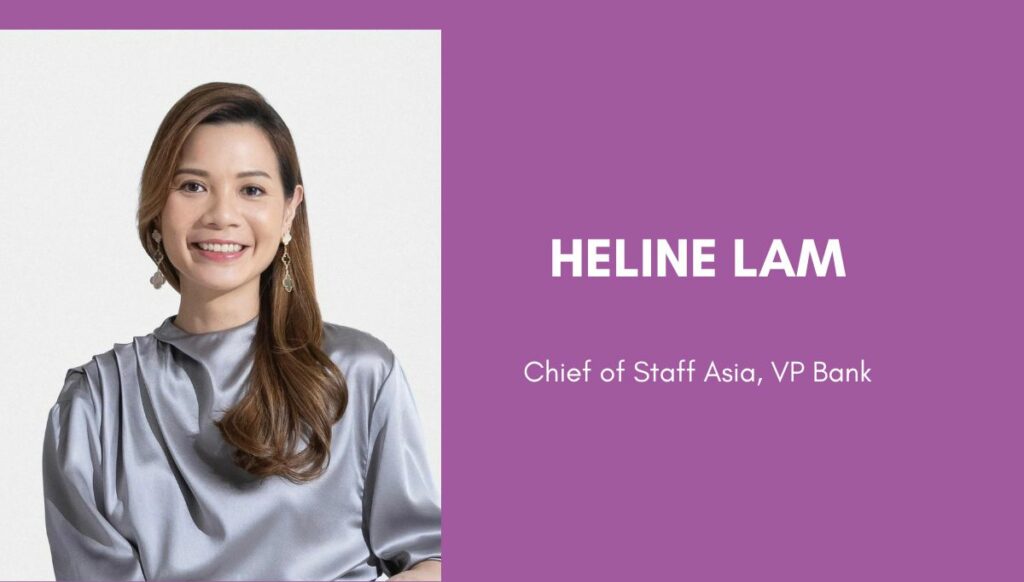
How do you envision the future of women in leadership and the steps we can take to ensure a more inclusive environment?
While gender diversity remains a current topic, my hope is that women leadership would be so entrenched in the professional arena that it will no longer be a challenge or a point of discussion. Inclusion holds a wider meaning that goes beyond gender; it extends to age and to embracing our differences in all forms.
In promoting diversity, it is essential to lead by example, ensuring that inclusivity is embedded in our business strategies and decision-making processes. We have to “talk the talk and walk the walk”. Inclusiveness is not a luxury but a necessity for the sustainability and success of any organization, enabling greater engagement and ownership. Open communication and the sharing of ideas are extremely important in fostering a cohesive and collaborative work environment, where colleagues feel a high level of comfort and rapport in constructively deliberating over issues and solutions. Teamwork does make the dream work and much of this stems from an inclusive environment, regardless of age, gender, nationality, or seniority.
Can you share a pivotal moment in your career that significantly influenced your path or mindset?
Rather than a pivotal moment that influenced my path, my life experiences have shaped my mindset, which in turn influenced my career decisions and my willingness to proactively take on different challenges. At every stage of our careers, we accumulate a collective and diverse breath of knowledge and skillset which add value to an organization in various ways. We need to be confident in our acquired strengths and translate that to benefiting communities and organisations.
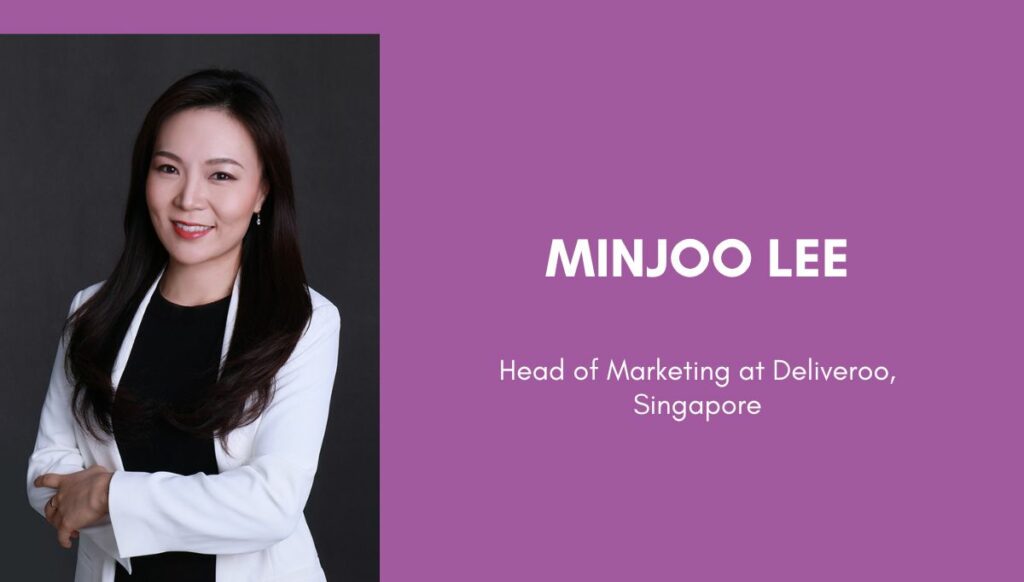
How do you envision the future of women in leadership and the steps we can take to ensure a more inclusive environment?
I strongly believe that keywords here are equity and fairness, and more importantly, how achieving them requires efforts from the collective society. For the general public, we need to acknowledge that historical and current unconscious bias in our workplaces have made it more difficult for women to gain the same level of recognition in leadership and achievements across various industries and countries. This means we (not just men but everyone) have to be mindful and avoid making assumptions and judgments based on external factors, instead recognising individuals based on their performance and capabilities. Whether you are a supervisor or in a leadership position, it starts from small things such as actively practising a culture that supports women’s success, including taking childcare leave and appointing leaders based on skill rather than appearance. Everyone’s efforts to make discriminatory behaviours and comments unacceptable are crucial in creating a culture where women are treated equally, even though these efforts may seem small.
On the other hand, women also have a part to play. First, presenting oneself as a confident professional is essential. While authenticity is important, how we carry ourselves forms the basis of our interactions, and we must all be aware of presenting ourselves as mature professionals. Second, trust and maturity are subtly different, and in order for us to receive necessary benefits and flexibility due to lifestyle changes such as giving birth and childcare, we must ensure that we handle our responsibilities professionally, while still addressing our unique needs.
In your experience, what are the most effective strategies for women to brand themselves in competitive industries?
Confidence and maturity. Be conscious about the things that you might unconsciously be doing, that might contribute to discounting your value or contributions. As a woman, for example, this means being conscious about apologising too much, being overly humble about your achievements or not voicing out your opinions.
Additionally, exploring opportunities that potentially allow you to showcase your leadership skills, or take on more senior roles or bigger responsibilities. For instance, people management is an important area to shape and improve leadership skills, and also, often the area that many females experience delay to take on.
At Deliveroo, we have launched several initiatives such as employee-led, international Employee Resource Groups (ERGs) that raise awareness of issues for members and action solutions to tackle them with our support. Our Gender Equity ERG, which leads and promotes gender-inclusive initiatives for our staff at all stages of their careers and personal lives, most recently held Deliveroo’s first ever Women’s Health Festival, which saw key industry voices come together with Deliveroo employees to shed light on and spark conversations on this important and under-discussed topic. Along with regular networking sessions held for the incredible women in the business, as part of International Women’s Day 2024, the Gender Equity ERG will also be hosting International Women’s Week, with a similar panel discussion and networking event.
Globally, we also have programmes such as ‘Accelerate’, that are tailored for high potential female employees to build their leadership identity, purpose, and vision, as well as panel discussions surrounding the power of mentorship for women.
Can you share a pivotal moment in your career that significantly influenced your path or mindset?
I grew up in China and also spent a significant part of my life in Singapore and in Korea. These global experiences that I have had with people from all walks of life have shaped me to be more aware of unconscious biases or perceptions that might unintentionally influence my thoughts and decisions. It has spurred me to be someone who’s passionate about creating an unbiased, nurturing working environment, and conscious about assessing and treating my team members and colleagues fairly.
I’m glad to be working at a company whose values align with my own – Deliveroo has a strong DEI culture, with programs like unconscious bias training that helps readdress thoughts and recognise potential unconscious biases that can occur in our daily lives and at work. We also take pride in our inclusive recruiting practices, as well as an employee-led gender equality committee that promotes and leads initiatives for a more gender-inclusive environment, for employees at all stages of their careers and personal lives.
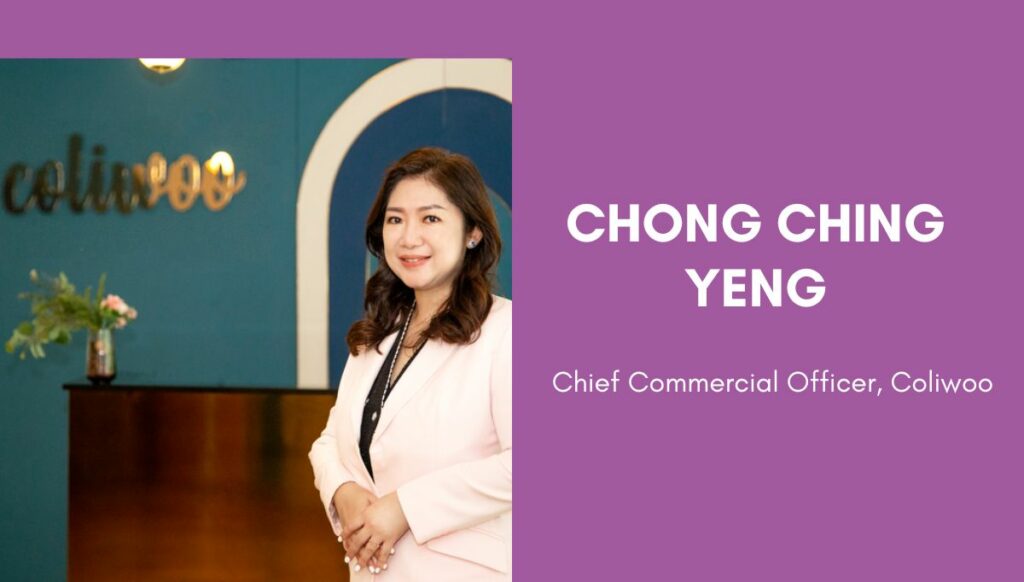
How do you envision the future of women in leadership and the steps we can take to ensure a more inclusive environment?
Inclusivity in the workplace begins with implementing diverse hiring and progression practices, especially in a male-dominated industry like real estate. Across Coliwoo’s various business units, meritocracy and performance take precedence, regardless of gender. We also foster a supportive work environment by conducting regular check-ins with team members to find out if they are facing any challenges, and if so, determine ways to address and integrate solutions with the wider team. Work-life balance is also one of the cornerstones at Coliwoo, as we recognise the importance of implementing flexible work-from-home practices for our teams to provide caregivers – including working mothers – the flexibility to tailor their schedules according to their family’s needs.
In your experience, what are the most effective strategies for women to brand themselves in competitive industries?
It’s important to believe in yourself, and not let gender stereotypes limit your potential. Often times, we are our own worst enemy and it’s crucial to let those negative thoughts and doubts pass. Confidence goes far, especially in environments where you may not be familiar with or feel alien in. Early on in my career, I was fortunate to be given an opportunity to work abroad, to develop LHN’s service apartment concept, 85SOHO. It was then where I realised that confidence is a currency, especially in a foreign environment. Despite the language barrier, I pushed myself to adapt to the local working culture, which led me to grow my network in the market and foster strong relationships with industry partners there. Through this experience, I’ve come to recognise the importance in embracing challenges head-on, as it opens the door to significant opportunities that could potentially have a profound impact on your career.
Can you share a pivotal moment in your career that significantly influenced your path or mindset?
During my time working abroad, the stint further allowed me to widen my worldview and immerse myself in experiences that I could not have experienced if I had stayed in Singapore. Through working with people from diverse backgrounds and walks of life, I’ve grown to realise the significance of being an understanding leader. This transcends workflows and operational management, but rather requires a deeper grasp on individual differences, perspectives, and cultural nuances, especially when managing a diverse and international team. These lessons have inspired me to develop and sustain an inclusive culture at Coliwoo, through empathy and understanding, so that my team members can feel encouraged to give their absolute best at work.
How do you envision the future of women in leadership and the steps we can take to ensure a more inclusive environment?
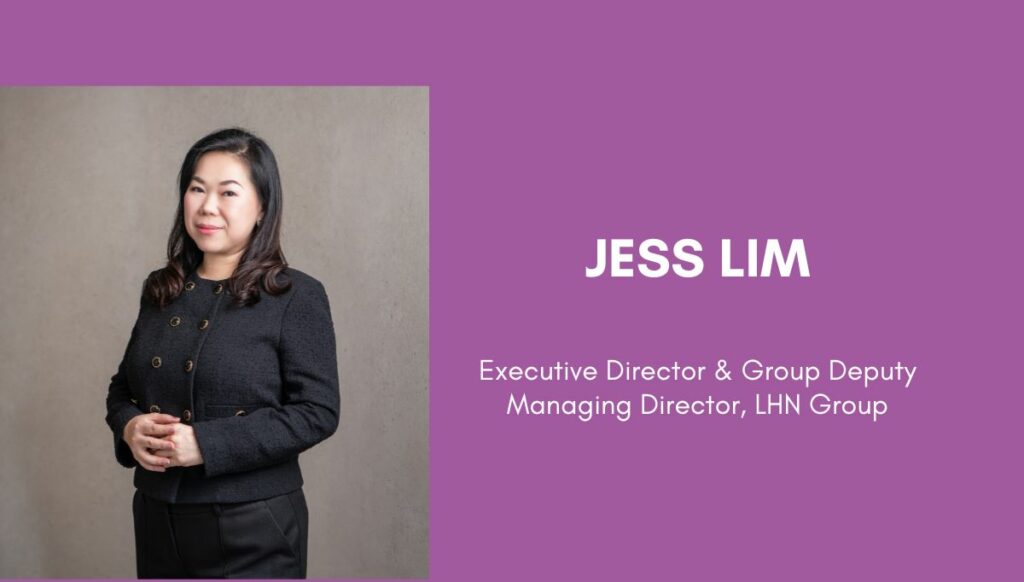
In my opinion, both genders bring unique perspectives, strengths, and potential to the table, all of which are vital for ensuring comprehensive development within a company. Therefore, fostering gender diversity should be regarded as a business imperative. With the recent increasing recognition of the importance of gender diversity and inclusion in driving innovation and success, I am positive about a future where gender diversity in leadership is not merely a goal to strive for, but an indispensable component of organisational success. This entails a deliberate effort to retain more women in line roles and propel them to C-suite management positions.
However, materialising this vision requires ongoing endeavours to overcome systemic barriers and biases that hinder women from flourishing and achieving their full potential. Organisations must adopt policies and practices that uphold gender equality, providing support for women to stay in their careers and progress to higher levels, particularly during their childbearing and child-raising years. These initiatives can be mentorship programs, leadership development opportunities, and flexible work policies that support work-life balance.
Moreover, it’s crucial to acknowledge that women often require additional encouragement to step into leadership roles. Cultivating a culture of inclusivity where women feel valued, respected, and supported is essential for nurturing and advancing female talents in leadership positions.
In your experience, what are the most effective strategies for women to brand themselves in competitive industries?
From my observation and experience working with both genders at various job levels and industry sectors, I find that women possess exceptional communication skills that enable them to express themselves very effectively. Hence, I believe storytelling is a powerful strategy that women can harness to create their personal brand. Anecdotes and self-reflection from their daily and professional lives are invaluable resources for women to craft authentic personal stories, which can inspire others and set them apart from the competition.
When recruiting for management roles, I’ve had the privilege of meeting many aspiring female candidates who are confident in their abilities and have adeptly identified their unique value proposition to creatively incorporate it into their personal branding. This ability is important for women professionals seeking to stand out in today’s competitive landscape. It involves recognising their core skills, professional as well as life experiences, and unique qualities that differentiate them from others. For instance, mothers, in particular, should be proud of their role and embrace the invaluable leadership skills that come with motherhood. They inherently possess the qualities of dedicated “senior executives within their families”, demonstrating a unique blend of managerial aptitudes, including communication, problem-solving, multitasking, and resource management. These skills are highly relevant and transferable to leadership roles within organisations.
Can you share a pivotal moment in your career that significantly influenced your path or mindset?
The pivotal moment that had a significant impact on my career path was when LHN Limited was successfully listed on the Singapore Exchange Limited (SGX) in 2015, followed by the Hong Kong Exchanges and Clearing Limited (HKEX) in 2017. With these events came the opportunity for me to be appointed as a member of the Board of Directors, a position that is typically dominated by men. This was a significant leap for me, marking the start of an exciting journey of continuously honing my leadership skills and expanding my comfort zones.
With many responsibilities and tough decisions to be made, it has become clear to me that gender does not determine one’s ability to lead. Being at the helm requires a genuine passion for what you’re doing, strong confidence in your abilities and an open mind to welcome challenges and new horizons. Maintaining a positive mindset is crucial for a leader as it allows you to see the bright side of adversity and turn it into learning opportunities. My experience as a woman – and as a mother – while in a leadership position has given me insights into the challenges that hinder women from advancing to management roles, enabling me to develop relevant policies and practices to groom more capable women to high-profile leadership positions in the future.
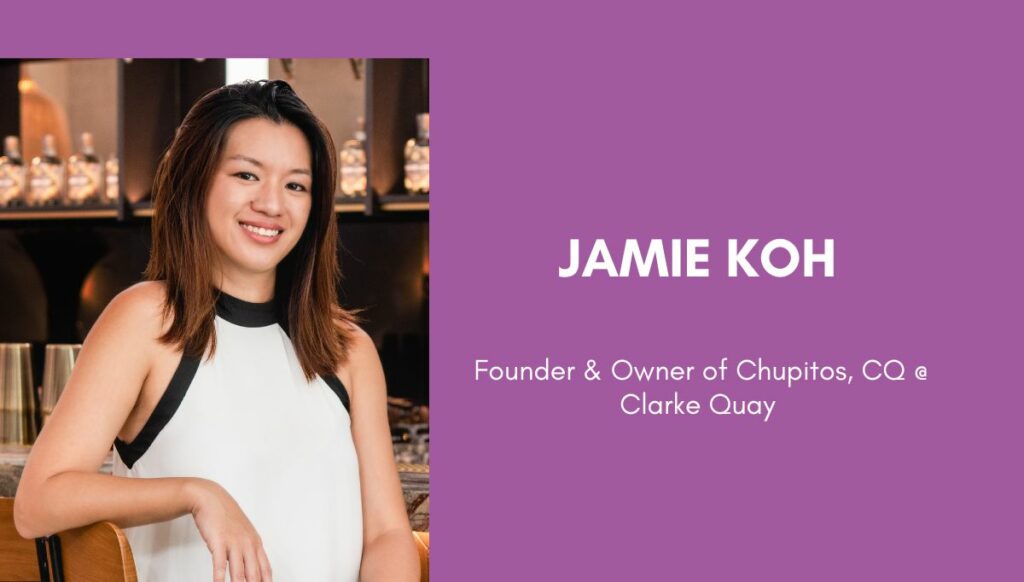
How do you envision the future of women in leadership and the steps we can take to ensure a more inclusive environment?
I would love to see a future where women in leadership aren’t the exception but the norm. It has to start ground-up via the company’s culture, through more representation and a greater sense of belonging. The F&B scene has always been male-dominated, with locker room talk and long hours that create a culture that isn’t appealing to women – despite the fact that the first distillers and cooks throughout history have been women.
It’s important to listen so that you can incorporate the nuances that make women feel fulfilled in their roles. Issues such as equal pay, lack of advancement or sexual harassment need to be directly addressed and policies need to be implemented to create a safe space where everyone feels comfortable. That means using respectful, inclusive language, creating teams with like-minded people that honour the company culture, and hiring more women at all levels of a company so that their collective voice is heard.
In your experience, what are the most effective strategies for women to brand themselves in competitive industries?
- Seek mentors – Finding female role models and mentors who have experienced and overcome the same barriers you’re currently facing is a great way to gain support, guidance, and valuable insights to help you reach your full potential.
- Craft a unique narrative – It’s important to identify the factors which set you apart from your peers. Using that, develop a clear, concise brand voice and content strategy. This will allow you to leverage your online presence to create an authentic identity that will resonate with your targeted audience.
- Build a network – Connecting with potential collaborators both within and outside of your industry opens you up to new opportunities and partnerships that can drive your professional growth.
Can you share a pivotal moment in your career that significantly influenced their path or mindset?
Launching Chupitos at CQ @ Clarke Quay at a young age was a period of growth that shaped much of my present philosophy. The bar industry was overwhelmingly male dominated and many thought we wouldn’t last 6 months. We proved them wrong at every turn and it taught me that with the right mindset and determination, anything is possible. This allowed me to enter into the distilling world, another predominantly male dominated industry, with confidence.
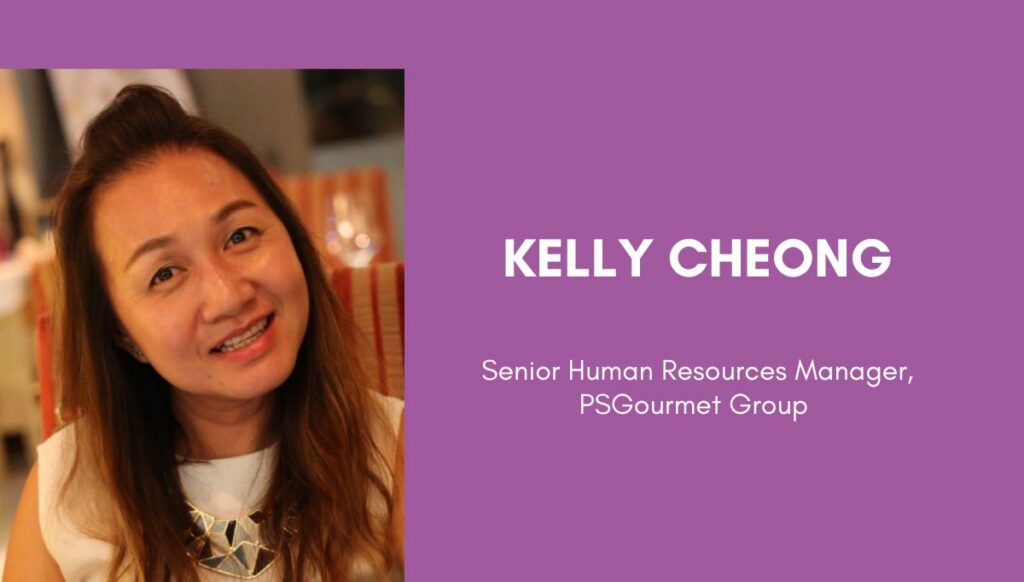
How do you envision the future of women in leadership and the steps we can take to ensure a more inclusive environment?
The template for a successful workplace laid down by the patriarchies of the past has already begun to change massively in some industries. This is thanks to those who have and who continue to break down barriers and push for equality.
Looking ahead, I hope to see women in leadership continue to shape the future, bringing about positive change in a way only they can. I believe that empathy, progression, and innovation will be the hallmark of organisations of the future, and this will be possible with the right support from organisations in addressing gender inequalities, through mentorship and development programs and cultivating a company culture that is sympathetic to females and the unique challenges they face.
In your experience, what are the most effective strategies for women to brand themselves in competitive industries?
I think it ultimately boils down to timeless qualities like dedication and creativity in your field, which naturally distinguish you from the crowd. The challenge lies in finding ways to embody these traits while embracing your identity as a woman.
Personal branding may be a trendy term, but fundamentally, it’s about letting your achievements shine. It involves establishing a solid reputation in your industry and network, aiming for excellence in your work, and demonstrating how your unique qualities contribute to your successes.
Can you share a pivotal moment in their careers that significantly influenced their path or mindset?
It was the time when my boss had a long conversation with me and asked if I’d ever considered Human Resources as a career. I found myself contemplating his words deeply. His observation of my enjoyment in interacting with others and my tendency to propose ideas for motivating and energising the team sparked a significant period of reflection regarding my career trajectory. His insights prompted me to seriously consider whether a career in Human Resources might be the right path for me.
I explored this possibility further, recognising the potential to leverage my interpersonal skills and passion for team engagement in a field dedicated to nurturing organisational culture, employee well-being, and ensuring organisational success through effective people management strategies.
As I delved deeper into the world of Human Resources, I took the opportunity to research the various roles and responsibilities within the field. Engaging with professionals in the industry and exploring potential educational avenues allowed me to gain a deeper understanding of what a career in HR entails.
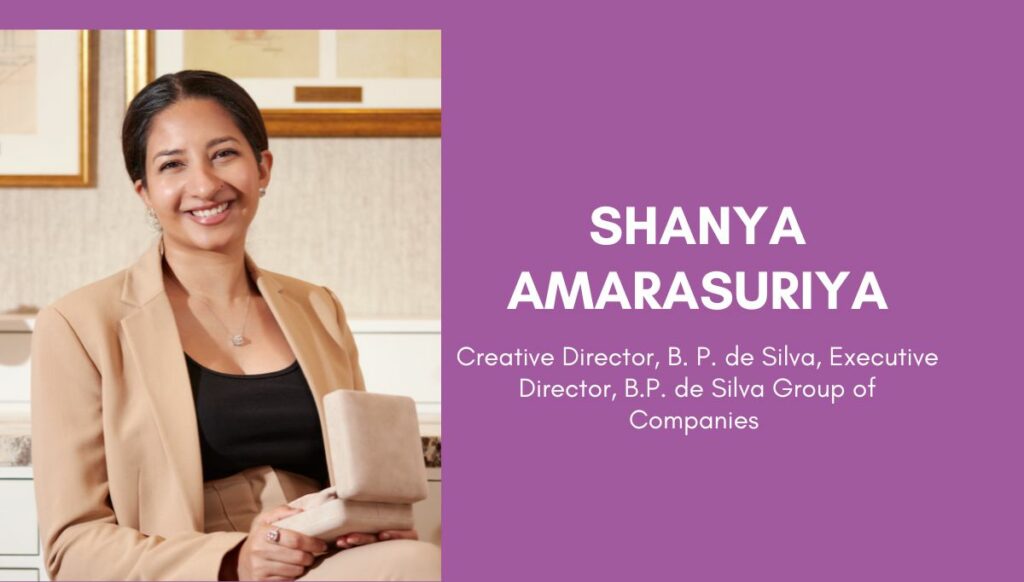
How do you envision the future of women in leadership and the steps we can take to ensure a more inclusive environment?
Who knows what the future holds as the world changes rapidly. But I do believe for the future ahead of us that it’s essential for leaders to exemplify qualities such as humility, curiosity, creativity, with a heart for the business as well as the people and environment within and beyond it to remain competitive. These are also timeless qualities that positively influence the world at large.
As for inclusivity, there are many initiatives which companies can take on via policy but to me, inclusivity comes from the top decision maker and is something that needs to be embedded deeply in the value system and culture of the organization for any lasting impact.
In your experience, what are the most effective strategies for women to brand themselves in competitive industries?
In my view, when women fully embrace themselves with a deep self awareness, self respect and self love, they show up as their best selves knowing what their strengths are, and where and what they want and can to contribute and create in the world.
As a result of that, coupled with dedication, passion, and consistency, one’s personal brand naturally comes to be born in the minds of others too. People are inspired to see what they can do, and by who they are as people.
I strongly believe that one’s personal brand is a by-product of how intentional they are about the way they choose to show up in the world.
Can you share a pivotal moment in your career that significantly influenced your path or mindset?
Happily! When I first started out, we had a sweet client who’d swing by our atelier every month or so to pick something up for herself even though oftentimes she’d chuckle and tell me how she’s “not actually a jewellery person”. Being new to the role it piqued my curiosity that someone who was soon becoming my top client didn’t see herself as a jewellery lover, so one day I asked her about it and she said “I never bought jewellery before until I found B.P. de Silva because somehow your designs feel like they were made for me”. Her earnest and sincere reply showed me the connection she had to the designs we had as an extension of who she was and it inspired me to believe in myself and my designs in a way that I continue to carry in my heart.
Also Read: Embracing Equality: Pichaya Thongthua on International Women’s Day at foodpanda Malaysia
The insights shared by these trailblazing women leaders not only illuminate the path toward a more inclusive future but also celebrate the spirit of International Women’s Day. Their contributions, rich in wisdom and experience, underscore the importance of diversity, equity, and empowerment in leadership. We are inspired and grateful for their perspectives, which serve as a beacon of hope and a guide for the ongoing journey toward gender equality and inclusion in all aspects of society.















